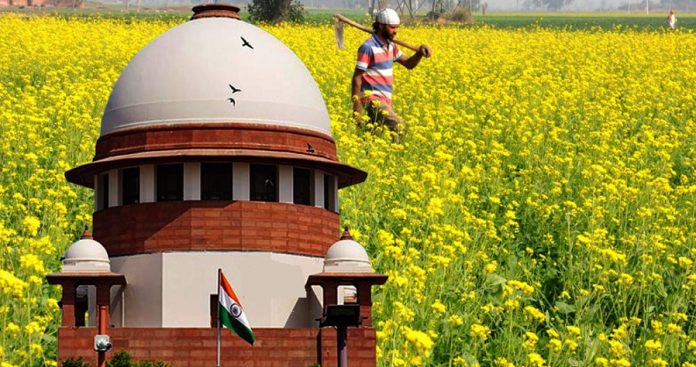- Of late, the debate about one arm of the Constitution getting in the way of the other is increasingly coming out in the open and with alarming regularity. I am referring to the underlying tension between the executive and the judiciary which is palpable what with statements and counterstatements emanating from both ends. The Indian citizens are aware of how the higher judiciary is facing challenges vis-à-vis filling of judges’ vacancies as the Union Government sits on the recommendations forwarded by the collegium. On the other hand, the establishment too is justified in raking up the struck National Judicial Appointments Commission (NJAC) replacing the collegium system.

PC: THE QUINT
- Ideally speaking, the impasse between the two pillars of the Constitution must come to pass in the larger interests of the country. Not for nothing, the higher judiciary is pencilled in for overreaching and activism whilst adjudicating/wading into the domain of the executive/ judiciary. Mind you, even the higher judiciary is burdened with thousands of pending cases desperately crying for adjudication. The learned judges could do away with certain issues that don’t deserve their attention which could be otherwise concentred on more pressing matters. Take for instance the Supreme Court getting into scrutinizing GM mustard, cleared by India’s biotech regulator GEAC for environmental release and speed production.
- Indeed, this raises the question of whether SC should be overstretching itself and probing into policy areas best left to the executive. For the uninitiated, the introduction of GM crops has been discussed at various levels of government for years. The current approvals followed multiple studies proving their safety and efficacy. Ideological or political opposition to GM foods exists even now, but a court is hardly the place to resolve such debates. If it were to become so, the executive will barely be able to function and the judiciary would be mobbed by all sorts of non-justiciable matters. The legislature and in turn the Parliament/assemblies are the right place for deciding on these matters.

PC: CLYDE OSBORNE
- India’s GM mustard policy is guided by public interest at multiple levels. As statistics reveal, India imports 60% of its edible oil seeds ($19 billion annually), and a fraction of this is GM soya bean oil. Both consumers of this GM oil (Indians) and exporter countries growing this crop have faced no problems. ICAR trials show GM mustard yielding 28% more than the domestic variety. Developers claim GM mustard would not need additional inputs of water, fertilisers, or pesticides, thereby translating into more yield at a lower cost. GM mustard is also the result of publicly funded R&D, negating the usual conspiracy theories.
- An SC inquiry into compelling reasons for allowing GM crops will stump GOI. From food security to reducing import dependence to improving farm revenues, GOI can trot out many reasons. Hence, need not go through the same process yet again. Thus, SC should be deeply suspicious of frivolous PILs that drag it into weighing the merits and demerits of policies. Of course, when policies demonstrably threaten rights, that’s the cue for courts to jump right in. But not when its intervention is unwarranted and becoming infructuous. Thus, it is humbly advisable for the SC to stay away from matters that don’t concern them.






